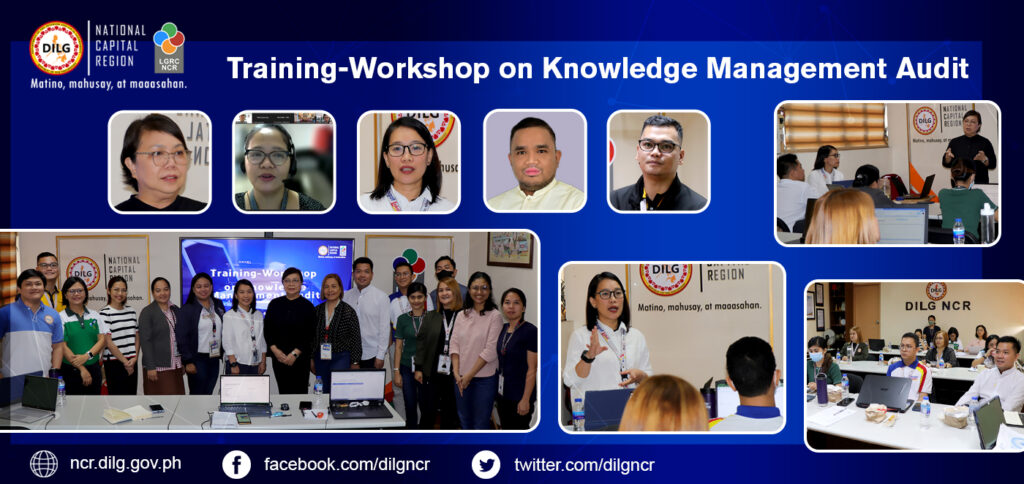
The Civic Innovation Facility of the DILG-NCR’s Local Government Regional Resource Center (LGRRC), led by LGOO V Dennis R. de Paz, facilitated a three-day training-workshop on Knowledge Management Audit that was held on June 14, 15, and 19, 2023.
The activity aimed to broaden and deepen learnings about Knowledge Management (KM) and KM Audit concepts by members of selected sub-LGRRCs. The said activity was spearheaded by one of DILG-NCR’s KM Champions, LGOO VII Helen A. Verzosa, Chief of the Local Government Capability Development Division (LGCDD) of DILG-NCR.
In her message, Regional Director Maria Lourdes L. Agustin, CESO III, pointed out the variations in criteria-setting undertaken through the years in the conduct of KM Audits. She encouraged the participants to take the opportunity presented by the workshop to study and analyze the strengths and weaknesses of DILG-NCR, by way of an exercise and preparation for administering KM audits to its partners.
During the workshop, the participants were able to utilize the four tools of KM Audit practice, namely: Organizational Capability Assessment, Knowledge Mapping, Social Network Analysis, and Knowledge Capital Planning. The exercise surfaced knowledge gaps in the organization subject of audit and will help direct future actions toward making the same a Knowledge Centric Organization (KCO).
On the last day of the activity, the DILG-NCR-LGRRC invited its Region VI counterpart for a knowledge-sharing activity. LGOO VII Christian M. Nagaynay, Chief of LGCDD, and LGOO II Mark Joenel F. Castillo from LGRRC Western Visayas shared their experiences and strategies in the implementation of KM Audits, as well as other best practices adopted in their region.
Assistant Regional Director Atty. Ana Lyn R. Baltazar-Cortez, CESO V, expressed her gratitude to the partners for sharing their experiences and strategies in the conduct of the KM Audit. She further stated that henceforth, all the undertakings of DILG-NCR-LGRRC shall be based on the results of the KM Audit. The results shall serve as a guide as to how to properly use and process knowledge, given the large volume of data that flow into the regional office from various sources.
